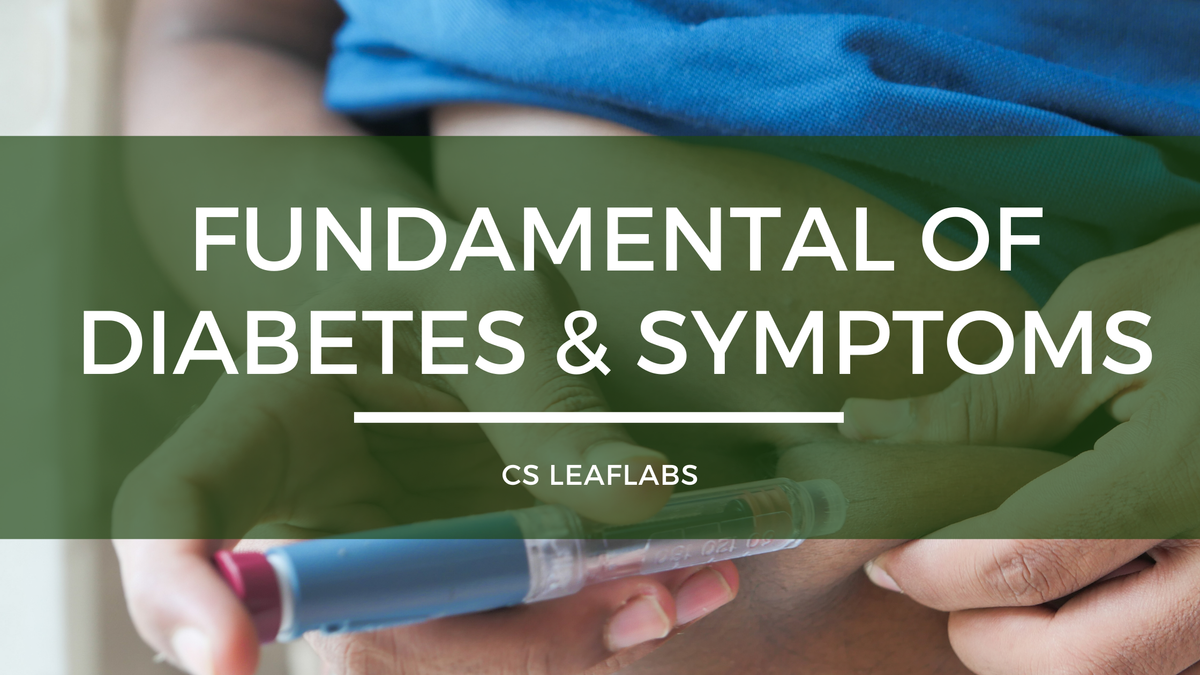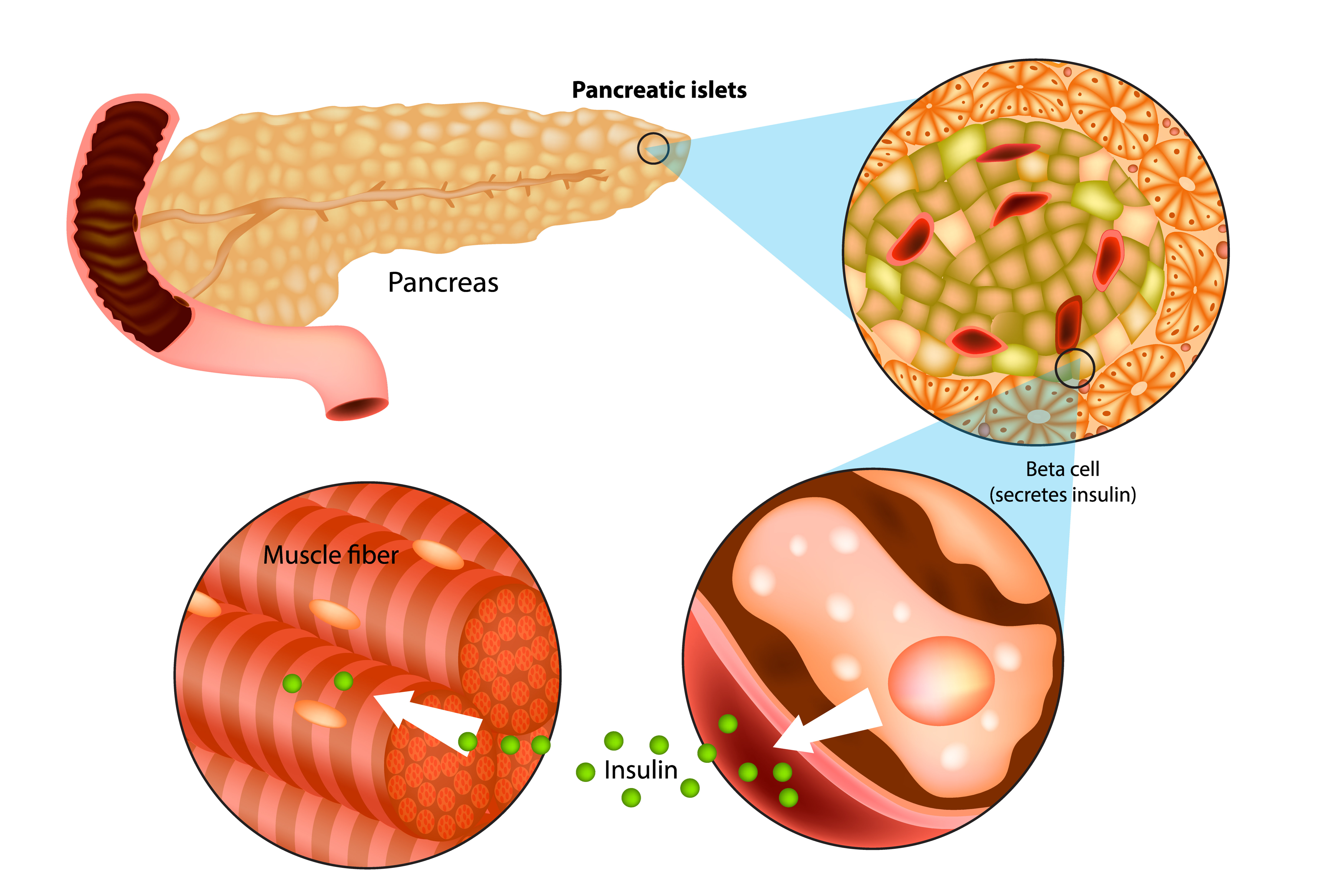
What is Diabetes?
Diabetes is a condition in which the body cannot produce insulin, or cannot effectively use insulin, to regulate glucose levels in the blood. This leads to increased sugar concentration in the blood, which can have devastating effects on your health if left untreated.
There are two main types of diabetes: type 1 and type 2. Both types are manageable, though they must be monitored closely to avoid serious complications. If you think you may have diabetes, it is important to consult with your doctor right away.
Type 1 Diabetes: Your pancreas can not make insulin, therefore your body cannot absorb glucose, and your blood glucose levels rise.
Type 2 Diabetes: Your pancreas generates insulin, but it is either insufficient or your body is resistant to its action.
How is your body’s response to Glucose?
Carbohydrates are broken down and converted to glucose in the digestive system.
Glucose passes from the digestive tract into the bloodstream, causing blood glucose levels to rise
When blood glucose levels rise, the pancreas releases more insulin into the bloodstream.
Insulin travels from the bloodstream to the cells of the body, allowing them to absorb glucose.
Glucose is burned inside bodily cells to provide energy. Glucose is turned into glycogen in liver cells.
Because the cells have received glucose from the bloodstream, the blood glucose level has decreased.
The pancreas produces glucagon in response to low blood glucose levels.
Glucagon is converted in the liver to glucose, which enters the bloodstream.
 Signs and symptoms of Diabetes
Signs and symptoms of Diabetes
Diabetes is a chronic condition that affects the way your body metabolizes sugar. Most of us have heard of diabetes, but it’s more common than you might think.
Approximately About 422 million people worldwide have diabetes, the majority living in low-and middle-income countries, and 1.5 million deaths are directly attributed to diabetes each year. It’s important that you know how to recognize some of the most common signs and symptoms of diabetes.
Thirst and Dry Mouth
Because your body is passing a big amount of urine as part of its mechanism for lowering the level of glucose in your blood, it becomes dehydrated, causing thirst and a dry mouth.
Weight Loss
When your body is unable to use glucose, it begins to break down fat and muscle stores for energy, causing you to lose weight and muscle mass. Type 1 diabetes causes more frequent and fast weight loss. Weight reduction in type 2 may occur slowly or not at all.
Slow Healing
Consistently elevated blood glucose levels may result in impaired blood circulation throughout the body. Because blood is required for tissue repair, and a lack of blood supply can hinder the healing of damaged tissue, such as skin wounds.
Sexual Dysfunction
Long-term high blood glucose levels might cause nerve damage and impaired blood circulation. These, in turn, may result in issues such as erectile dysfunction in men or reduced sexual desire in women, as well as painful intercourse.
Tiredness and Lack of Energy
Because your cells are starved of glucose (their primary source of energy), you may feel exhausted and drained all the time, even if you rest or sleep more than usual. You may also experience dizziness from time to time.
Persistent Hunger
Because glucose from food digestion cannot enter your body cells owing to insulin insufficiency, you may feel hungry much of the time, even immediately after eating.
Blurred Vision
When your blood glucose level rises, your eyes' lenses absorb glucose and water. This causes them to swell, resulting in impaired vision.
